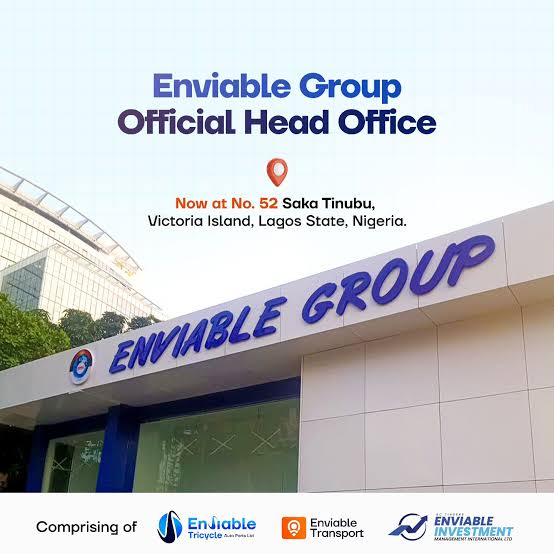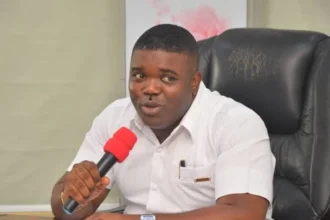
The Lagos State Government has firmly defended the recent demolition of structures at the popular Trade Fair Complex in Ojo Local Government Area, clarifying that the operation was carried out purely on technical grounds and had no ethnic undertone. Commissioner for Physical Planning and Urban Development, Olumide Oluyinka, made this clarification during an interview on Channels Television’s programme The Morning Brief on Thursday, following widespread reactions to the exercise.
Oluyinka dismissed insinuations that the enforcement targeted any ethnic group, particularly traders of South-East extraction, who make up a significant percentage of the business community at the complex. According to him, the government’s responsibility is to ensure strict compliance with physical planning laws across Lagos, and such actions have been implemented in several other parts of the state irrespective of the identity of those affected.
“That is not true,” the commissioner declared in response to claims of ethnic victimisation. “We have been to Owode Onirin, Idumota, and Ikeja. It has no ethnic colouration. The fact is that we just have to do our work. There is nothing ethnic here; it is purely technical.”
He stressed that the government’s duty was to safeguard lives and prevent disasters by enforcing planning regulations. The commissioner cited examples of similar enforcement operations in areas like Lagos Island, where even the palace of a traditional chief was not spared.
“There has been a series of enforcement carried out on Lagos Island. I personally led a team that even touched the palace of a white cap chief. This is Nigeria for all of us. The facts are clear; when you are in a place, you must live by the law of that place. It is as simple as that,” Oluyinka stated.
Poor Planning and Irregular Allocations
Oluyinka explained that part of the problem stemmed from the management of the Trade Fair Complex, which had been leasing land to private developers without observing due process or consulting relevant authorities. This, he said, led to the construction of unsafe and substandard buildings.
“What we have seen is a situation where the management is leasing out land to third parties who bring in their own consultants and contractors to build without recourse to the law. That day, we showed them that there was no meaningful layout there. We saw a three-storey building just two feet from the road kerb. When you open the shop doors, they swing over the road. Do you want to tell me a serious architect designed that? That cannot be possible,” he said.
He noted that such irregularities posed grave dangers, not only to traders but also to the general public, adding that government could not continue to overlook the infractions.
Defaulters Were Given Notice
The commissioner also debunked claims that the demolitions were sudden or carried out without notice. He insisted that defaulters had been given more than enough time to regularise their structures and comply with planning regulations.
“I led a team there in March 2024. Between then and now is over a year and a half,” he recalled. “We met with the Executive Director, and there was almost a confrontation, which is evidence that we were there.”
Oluyinka revealed that in the course of enforcement, state officials were assaulted and even detained. “Our officers went there to serve notices and were locked up for five to six hours. We had to bring in the police to release them. Even this year, officers went there and were detained. So, what more notice are they requesting? It’s not new to them that we were coming. We gave defaulters time. They must keep by the law,” he stressed.
State of Decay
Beyond the issue of illegal structures, the commissioner lamented the deplorable state of infrastructure within the Trade Fair Complex, describing it as an eyesore unbefitting of a major commercial hub.
“It’s a shame we allowed our Trade Fair to get to that extent. Refuse, passage, drainages, walkways, sewage, everything is in shambles. They should even be happy we are there to sanitise because that is our responsibility. We cannot allow it to continue,” he said.
According to him, government intervention was long overdue and became necessary to restore order, enhance safety, and create a conducive environment for business activities.
Government Action
The demolition exercise, which commenced on September 25, was spearheaded by the Ministry of Physical Planning and Urban Development in collaboration with key state agencies, including the Lagos State Building Control Agency (LASBCA), the Urban Renewal Agency, and the Physical Planning Permit Authority.
A statement from the ministry described the operation as part of a wider effort to rid Lagos of illegal developments, defective structures, and buildings erected without statutory approvals, especially those constructed on road setbacks, drainage alignments, and other restricted zones.
FLASH: Lagos State Government begins removal of illegal development, structures without statutory approvals, defective structures, and structures built on road setback and drainages in the Trade Fair Complex, Ojo Local Government area.
Balancing Development with Regulation
The commissioner stressed that while the state government encourages business growth and supports traders, such growth must align with the city’s physical planning framework. He insisted that unplanned development not only hampers smooth commercial activities but also endangers lives.
“This is not about stopping people from doing business. Lagos is the commercial heartbeat of Nigeria, and government recognises the value of the Trade Fair Complex. But it must be done right. We cannot allow people to wake up and build structures that block roads, drainages, or endanger lives. That is why the enforcement is necessary,” Oluyinka explained.
Traders’ Concerns and Public Reaction
The demolition has triggered mixed reactions. Some traders accused the government of insensitivity, claiming their investments were being destroyed without viable alternatives. Others alleged selective enforcement targeted at certain groups, particularly Igbo traders, who dominate business activities in the area.
However, officials of the Lagos State Government continue to maintain that the exercise is impartial and solely driven by technical considerations. Analysts argue that the controversy underscores the long-standing issue of poor urban planning in Lagos and the need for proactive measures to address illegal developments before they become entrenched.
Looking Ahead
The state government has hinted that more enforcement operations will follow, as part of its broader agenda to modernise Lagos and ensure that development across the metropolis is sustainable and lawful. The commissioner appealed to the public to view the exercise not as an attack on any community but as a necessary intervention to safeguard the city’s future.
“This is about Lagos, not about any ethnic group. When we act, we do so in the overall interest of the state. We want a city where people can live and do business safely. That is our commitment,” Oluyinka concluded.
As the dust settles from the demolitions at the Trade Fair Complex, attention now shifts to how the government will manage the fallout, address traders’ grievances, and balance enforcement with economic realities. What remains clear is that the Lagos State Government has drawn a line in the sand, signalling that illegal and unsafe structures will no longer be tolerated in the state.





